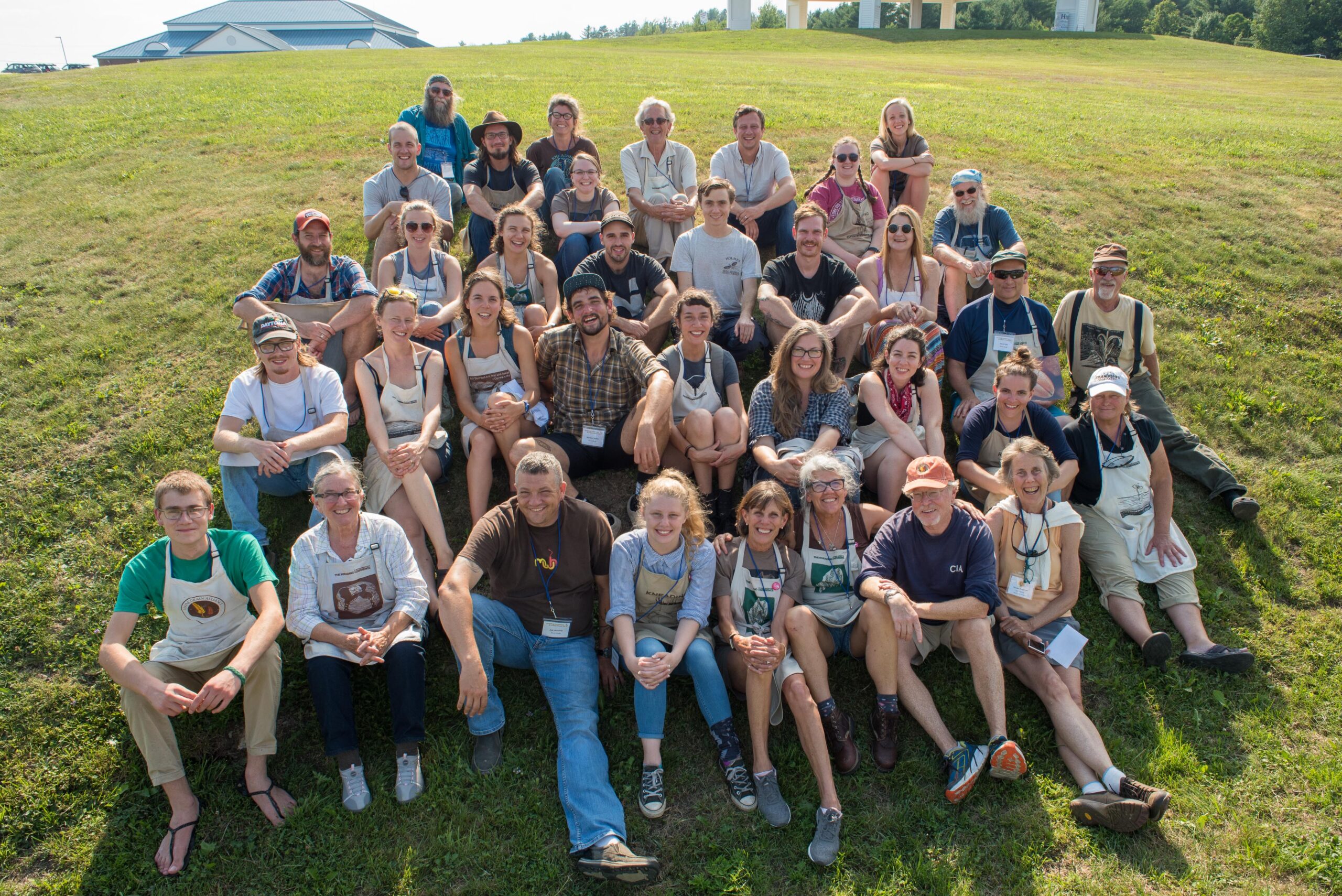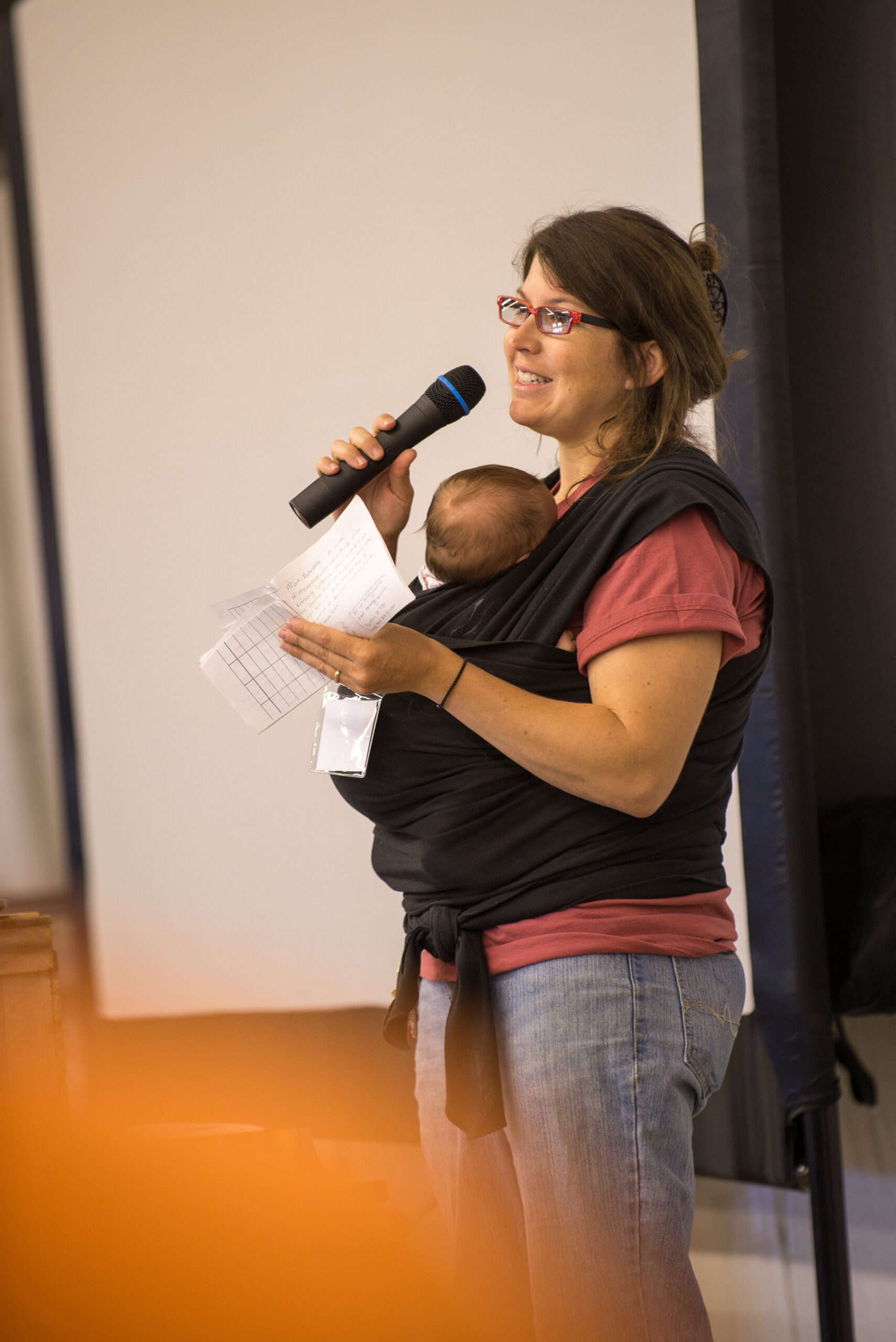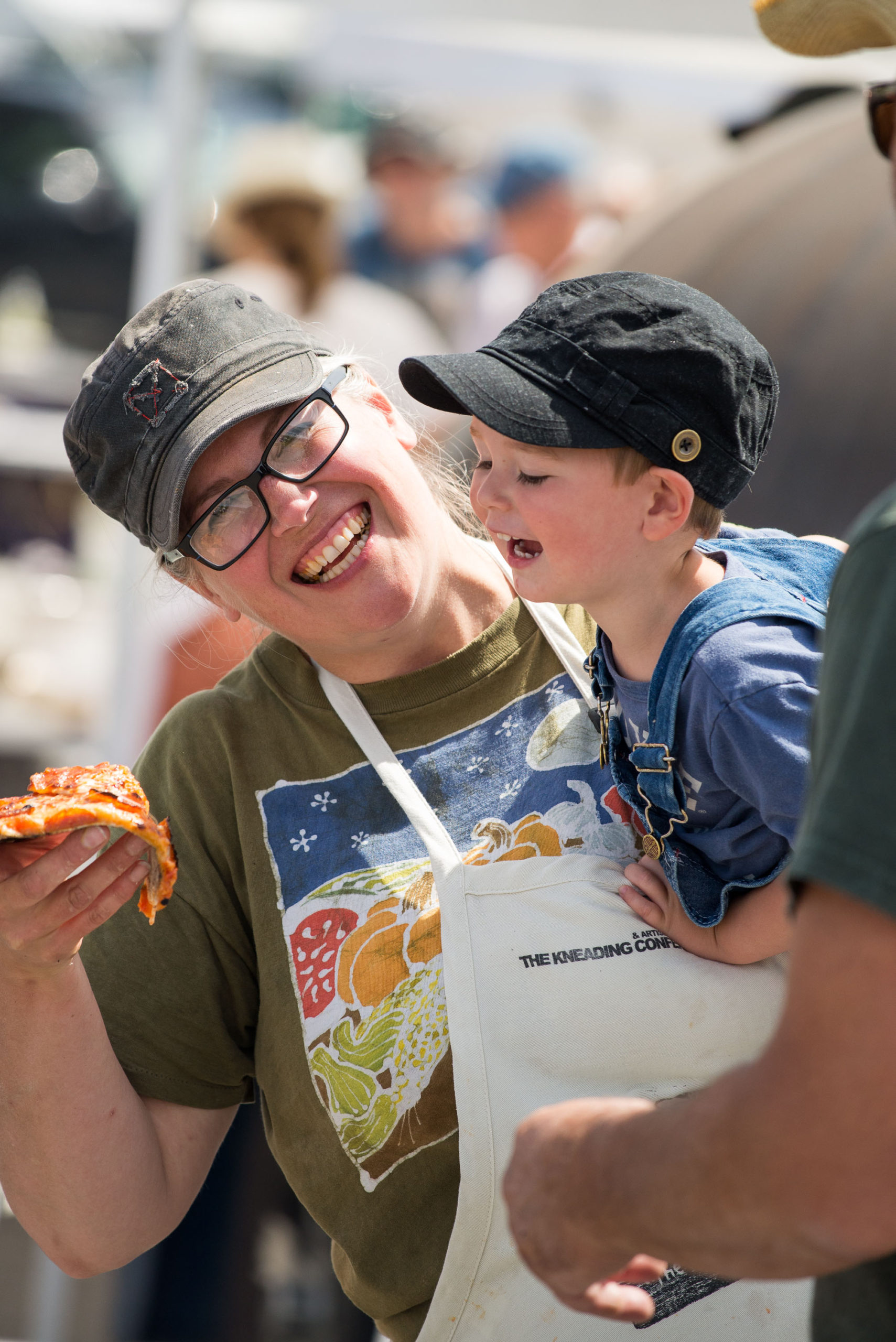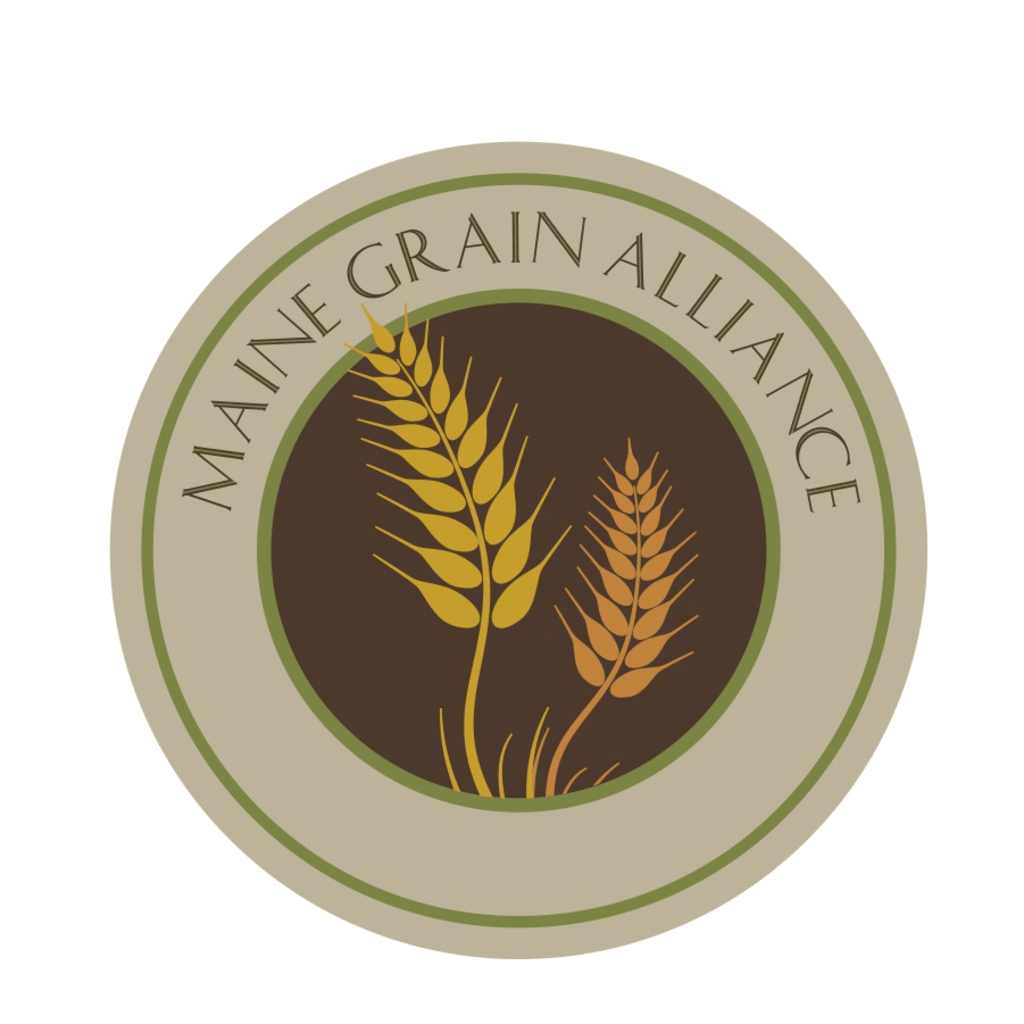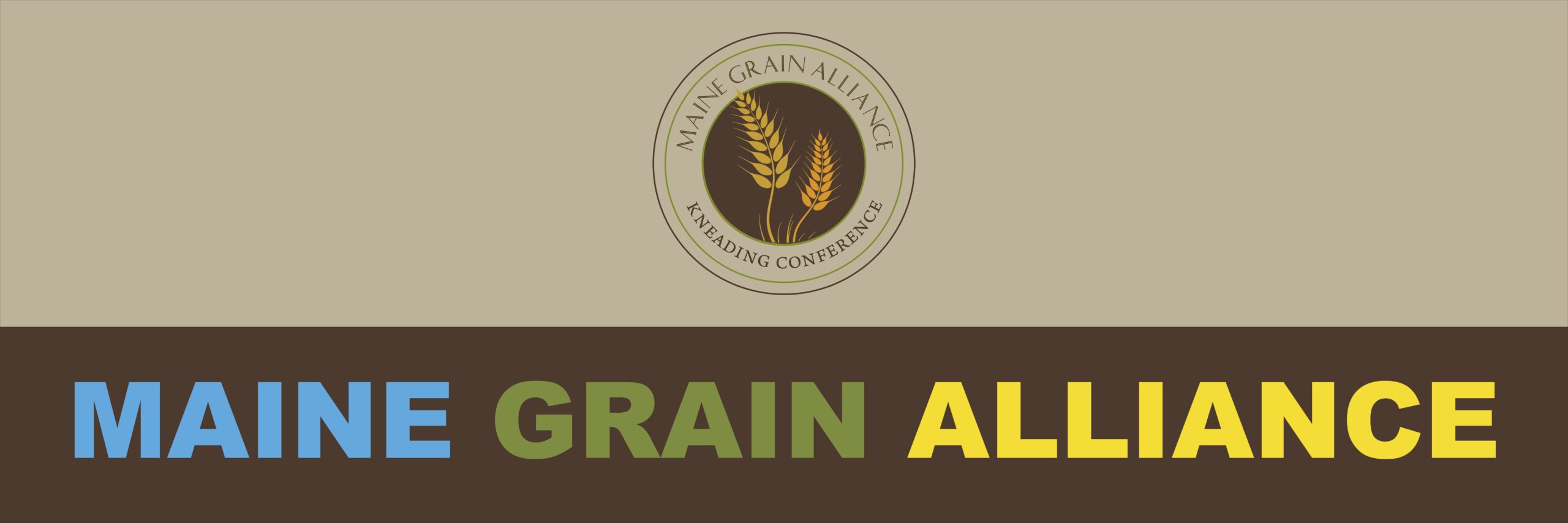
15
Kneading Conferences
11
Maine Artisan Bread Fairs
1000s
Impacted by our programs
Supporting the grain Community Since 2007
Our mission is to inspire and empower people who are building local grain economies.
We create connections and share grain traditions and innovations from earth to table.
Beginning with the first Kneading Conference in 2007, the Maine Grain Alliance has provided opportunities to learn and share how best to grow and use grains to thousands of individuals across the world. The Maine Grain Alliance promotes beneficial uses of grain for good health, food independence, and purposeful jobs within viable communities.
We connect people and support the economic, environmental, and nutritional importance for establishing regional grain economies.
It all started around the kitchen table
Our story
Building A Regional Grain Economy
2002
Maine grown and milled wheat finds its way to Maine bakeries.
In 2002, Jim Amaral, baker and owner of Borealis Breads in Maine was instrumental in forming a partnership with a grain farmer and Cooperative Extension educator in Aroostook County, Maine, Matt Williams, to procure more Maine grown grains for his artisan loaves. The rise of the local food movement made some bakers like Amaral question whether their wheat flour could once again come from Maine. Borealis Breads partnered with Matt and Aurora Mills & Farm was founded in Linneus, ME.
2007
The First Kneading Conference
The Maine Grain Alliance was founded in 2007 when a grassroots group of individuals came together to start the Kneading Conference, an annual gathering of grain farmers, millers, bakers, researchers, and oven builders designed to inspire and spur the revitalization of local grain economies.
2010, July
The Kneading Conference moves to the Skowhegan State Fairgrounds and the Maine Artisan Bread Fair is founded.
Relocating the Skowhegan State Fairgrounds, home to the nation’s oldest consecutitvely running fair, helped to accomodate the growing number of attendees interested in learning at the Kneading Conference. The fairgrounds allowed organizers the ability to showcase the many talented grain professionals in our community through the Maine Artisan Bread Fair.
2010, October
The Maine Grain Alliance becomes an official non-profit.
The Maine Grain Alliance established formal 501(c)(3) status in 2010 in order to add additional year-round programs to further broaden education and support for rebuilding Maine’s grain infrastructure and knowledge base.
2012
Interest in grain reasearch and processing increases in Maine
With two years of the annual Kneading Conference underway, and private foundations beginning to seed the interest for grain research and processing in Maine, the University of Maine Cooperative Extension at Orono in cooperation with University of Vermont secured a $1.3 million USDA “Local Bread Wheat Project” grant to increase farmers’ capacity to produce high quality organic bread wheat, a project that took place from 2009-2013.
Members of the Maine Grain Alliance served on the project’s advisory board and participated on trips throughout Canada and overseas in Denmark to learn from more advanced regional grain clusters and to see firsthand the infrastructure that supports small to midsize farms in serving regional markets for both human food and animal feed. The project focused on agronomic techniques for farmers, resource development and understanding the economics of grain production and farmer exchanges.
2012
Maine Grain Alliance helps provide first equipment to farms
2012
Processing of grains takes a leap forward with opening of Maine Grains.
Thanks to support from the Betterment Fund, the Maine Grain Alliance is able to provide small amounts of match funding to several central Maine grain farms and mills to purchase their first small scale grain drying and storage equipment.
Founding director of Maine Grain Alliance, Amber Lambke, along with baker Michael Scholz, took on the challenge of piecing together the knowledge and equipment necessary to start Maine Grains, a gristmill in downtown Skowhegan, Maine as a way to restore necessary processing infrastructure in central Maine. Launched in 2012, the mill provides stone-milled flour and rolled oats from locally grown grain to bakeries, breweries, natural food stores and restaurants from Maine to New York City.
2013
Maine Grain Alliance establishes the Rare & Heritage Seed Restoration Program
2013
Smale Scale, sharable equipment made available to farms by MGA
Since 2013, MGA has been employing experienced and interested farmers in central Maine to nurture selected varieties, pool seed yields and scale up the production capability. The goal is to multiply the seed supply of rare grains already determined to be viable in Maine’s climate.
This program was made possible thanks to Richard Roberts and support from Maine Grains, the Maine Community Foundation, & Farm Credit East. In 2020, the MGA recieved a Special Commissioners Award from the Maine Department of Agriculture, Forestry and Conservation that helps fund the next three years of seed restoration work.
In 2013, the Elmina B. Sewall Foundation funded the Maine Grain Alliance to purchase demonstration seed planting, harvesting, threshing, cleaning and solar drying tools to work with small scale seed growers in central Maine.
2014-2015
Maine Grain Alliance establishes Technical Assistance Grant Program for grain-based businesses in Maine.
In 2014 and 2015, Allagash Brewing Company and Quimby Family Foundation collectively award the Maine Grain Alliance $20,000 to re-grant to 30 small grain based businesses in Maine for technical assistance and equipment needs. Technical assistance grants have been awarded each year since thanks to support from Allagash Brewing Company, Skowhegan Savings, and Slow Money Maine.
One of the first technical assistance grants awarded was to Joel Alex who would go on to found Blue Ox Malthouse. In 2014, the founding of Blue Ox Malthouse and Maine Malt House by Buck Farms created important avenue for the expansion of processing of malt grade grains for the brewing industry.
In 2020, the MGA was also able to faciltate a round of technical assistance grants awarding $12,475 to 19 grain-based businesses in Maine.
2016
MGA creates a feasibility study exploring how organic grain can be expanded to meet market demand.
With the support of Maine Technology Institute, the Maine Grain Alliance explored the scaling of organic grain processing in Maine to serve regional and export markets. The project explored what types of postharvest enhancements were needed on farms to protect crops and preserve high quality diverse varieties of grain on farms in Aroostook County, Maine.
2017
The Grain Education Program is expanded to include more offerings outside of the Kneading Conference.
2018
The Kneading Conference continues to grow into one of the premier grain and baking conferences in the country.
2018
MGA helps showcase opportunities for growth in the grain economy through The Future of Grain Tour.
As part of its work to build an economy that works for everyone,the Maine Grain Alliance, CEI, Focus Maine, and O’Maine Studios helped organize The Future of Grain Tour as a way to connect Maine’s rural food system entrepreneurs with the investment community to support innovative food businesses. The series was designed to support economic development and quality job creation.
2019-2020
An ambitious $200,000 project to address a lack of on-farm postharvest grain handing equipment and infrastructure is undertaken.
As the market has grown for food and malt-grade grains, so too has the need for appropriately scaled on-farm postharvest grain handling. Postharvest spoilage begins when grains are exposed to too much moisture, even for a short time. The moisture level of the grain must be reduced rapidly. Grain seeds need to be maintained in viable condition for long market windows, without losing milling, malting and seed-grade germination standards. The lack of infrastructure to help achieve these standards is one of the central bottlenecks in helping Maine-grown grains get to market.
The MGA, with support from Maine Technology Institute and Slow Money Maine, has led the work on the ground for enhanced cleaning, drying and storing solutions. Its current postharvest grain handling project is a $200,000 effort to support seven Maine farms that already play a key role in the grain economy. Equiment purchased as part of this project includes: laminar air flow grain cleaners, solar powered grain driers, storage cocoons, spiral grain separators, moisture sensors, gravity tables, in-field grain cleaners, storage tank stirring devices, batch grain driers and more.
2020
Supporting our community in a time of need.
In face of the COVID-19 pandemic, the Maine Grain Alliance made a decision to devote as many resources as possible to work in service of many grain-based businesses in a time of need. We feel it is incredibly important to rise to the challenge to support the very folks who have supported our vision since 2007. We have created new opportunities and mobilized our extensive network.
Thanks to the generosity of Maine Grains , the MGA was able to donate two pallets of grain to Flour Bakery in Boston and Olmstead Restaurant in New York City who used the grain to serve emergency workers on the front lines of the pandemic response.
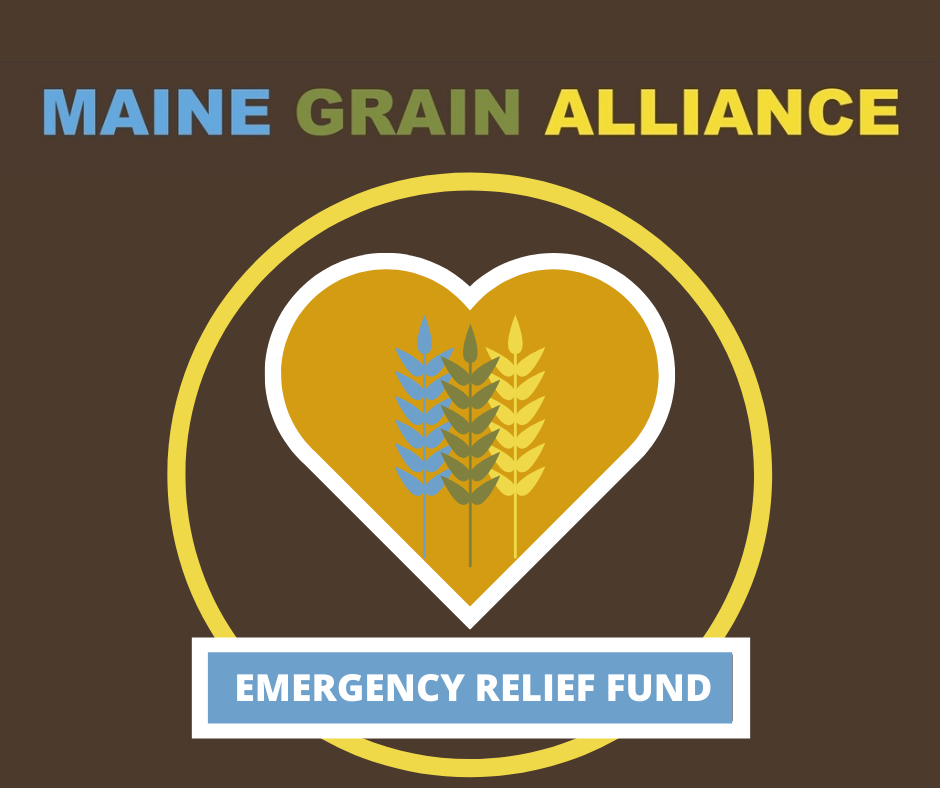
In 2020, the Maine Grain Alliance created the Emergency Relief Fund. The fund supports grain-based business owners in Maine and outside the state with unexpected expenses relating to COVID-19 pandemic and aids in costs associated with reopening businesses. Sponsors of Kneading Conference and Bread Fair, like Maine Grains, Redington Fairview Hospital, and Maine Farmland Trust supported this new use for their contributuions. Foundations and support oganizations like the Elmina B. Sewall Foundation, the Bill and Joan Alfond Foundation, and Slow Money Maine contributed greatly to this initiative. Thanks to the efforts of Daniel Des Rosiers, a Kneading Conference presenter, his bakery (Boulangerie Des Rosiers) was able to pass contribute funds by donating proceeds from an educational workshop he organized. Lastly our board of directors, board of friends, and members of our community contributed to the fund, allowing the MGA to hold two rounds of grant awards.
The MGA has been able to award nearly $40,000 to businesses in need to date.
2021
The Kneading Conference is held virtually with workshops hosted across the world.
Grain leaders from around the world led more than 25 virtual workshops and 50 hours of demos, panels, and discussions. A dedicated pages with videos, recipes, links to resources, and compilations of questions answered during the session was provided.
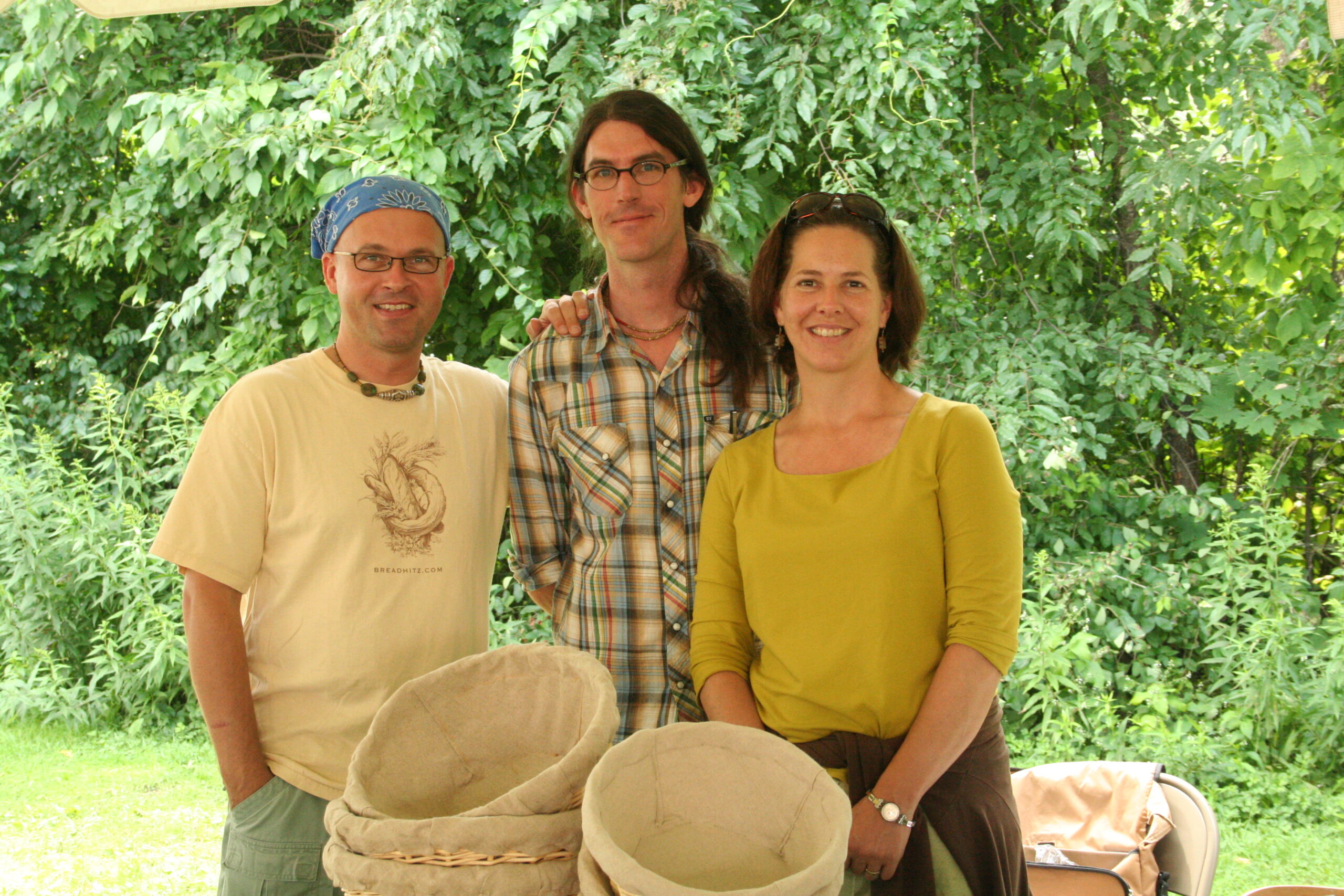
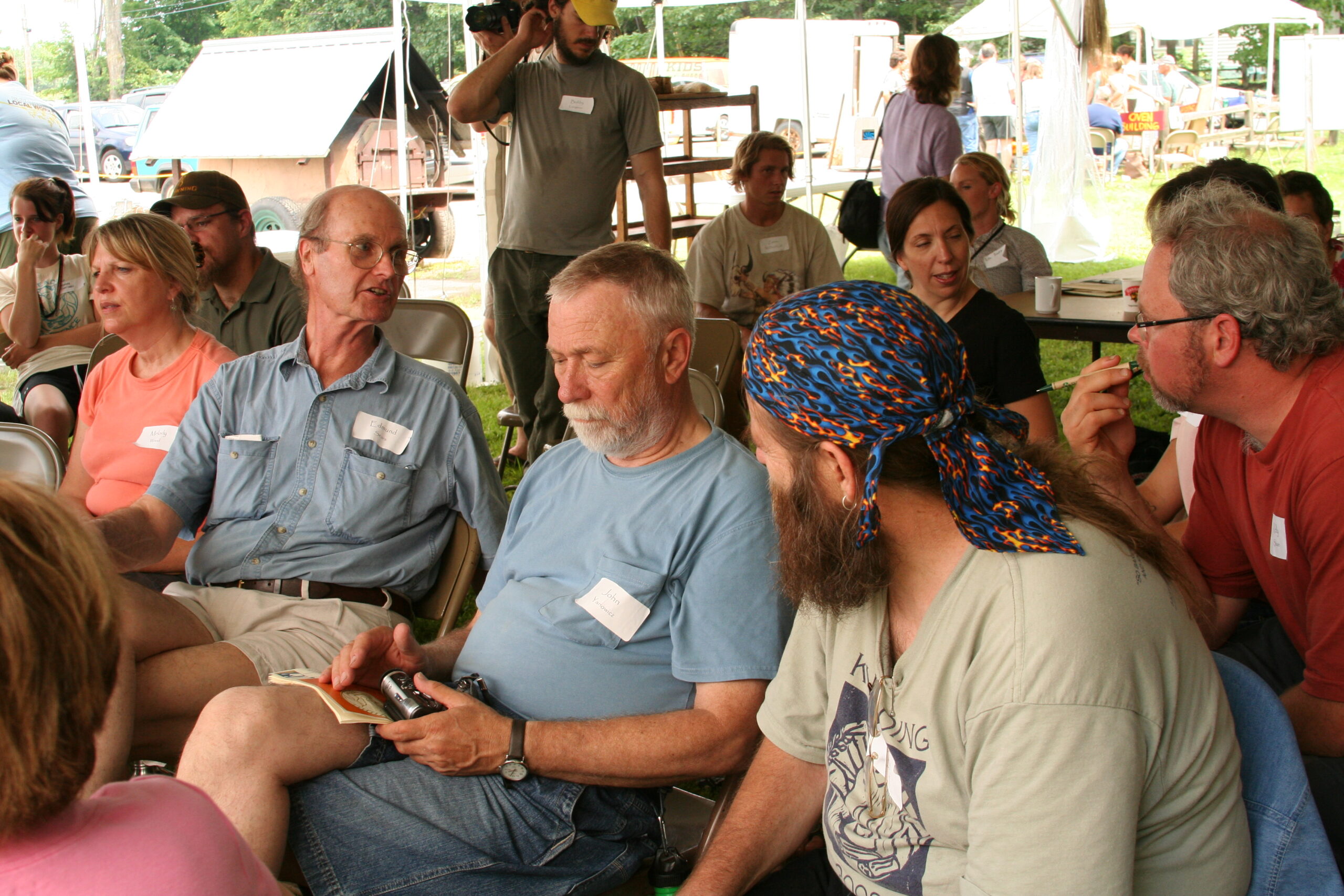
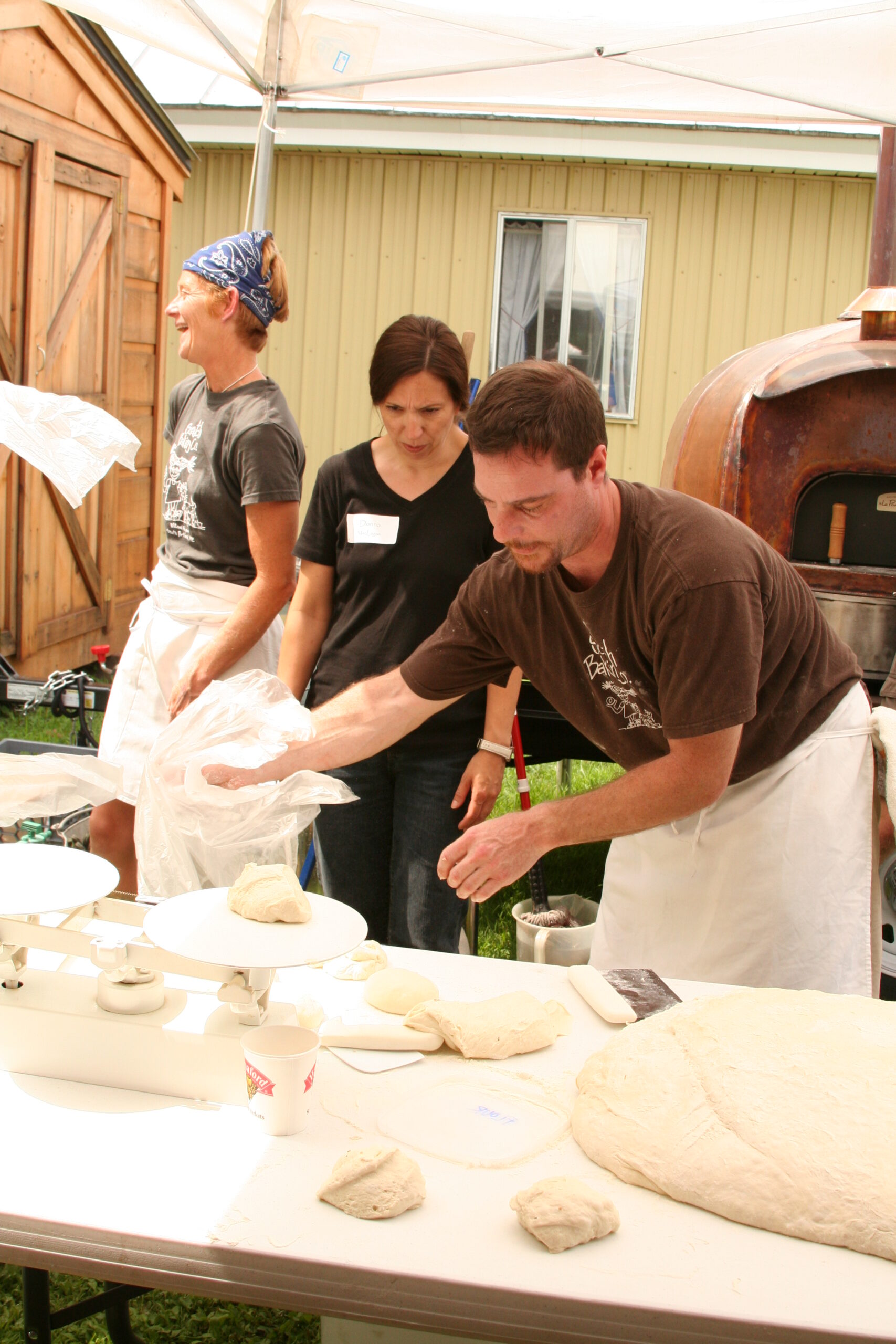
Become a Maine Grain Alliance Member and
Become Part of Our story
